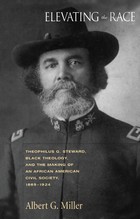
deeply committed to challenging his church’s outlook, he also epitomized postbellum efforts to create an African American civil society through religious, educational, and social institutions integral to citizenship.
Steward actively constructed a theological discourse that challenged both black and white religious and secular institutions, yet his tenacious pursuit of high standards often led him into conflict with the very community he served. A. G. Miller takes a new look at this
key figure in African American history to establish Steward’s place among the most influential thinkers and activists of the late nineteenth century. Augmenting what is already known about Steward’s life with a thoughtful combination of intellectual and social history,
Miller presents Steward’s ideas within the context of the social, political, economic, and religious trends of his day.
Miller examines Steward’s accomplishments and writings—including his unpublished manuscripts and his overlooked Victorian novel—to assess the ideas that he left to posterity and to consider how they shaped his times. The book devotes individual chapters to the
key themes that dominated Steward’s life: African American education, reconciling theology with modern science, the intersection of rational theology and moral virtues, the contradictions of race, the role of women in African American civil society, and Steward’s views on the military and imperialism.
With great insight and clarity, Miller discloses in a new and original way the rich life and thought of this extraordinary man. His study is both a groundbreaking analysis of Steward’s legacy and an important contribution to the history of American religious thought.
The Author: A. G. Miller is assistant professor of religion and Nord Faculty Fellow at Oberlin College and an ordained minister in the Pentecostal Church.
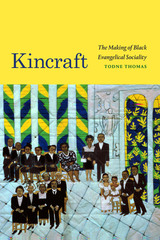
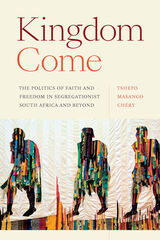
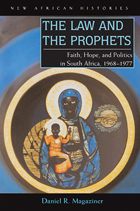
“No nation can win a battle without faith,” Steve Biko wrote, and as Daniel R. Magaziner demonstrates in The Law and the Prophets, the combination of ideological and theological exploration proved a potent force.
The 1970s are a decade virtually lost to South African historiography. This span of years bridged the banning and exile of the country’s best-known antiapartheid leaders in the early 1960s and the furious protests that erupted after the Soweto uprisings of June 16, 1976. Scholars thus know that something happened—yet they have only recently begun to explore how and why.
The Law and the Prophets is an intellectual history of the resistance movement between 1968 and 1977; it follows the formation, early trials, and ultimate dissolution of the Black Consciousness movement. It differs from previous antiapartheid historiography, however, in that it focuses more on ideas than on people and organizations. Its singular contribution is an exploration of the theological turn that South African politics took during this time. Magaziner argues that only by understanding how ideas about race, faith, and selfhood developed and were transformed in this period might we begin to understand the dramatic changes that took place.
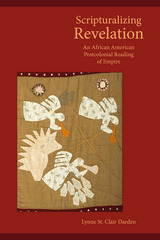
A fresh contribution to the growing body of New Testament scholarship on empire, both ancient and modern
Darden’s reading of Revelation examines John the Seer’s rhetorical strategy, in general, and imperial cult imagery in chapters 4 and 5, in particular, through the lens of an African American scripturalization supplemented by postcolonial theory. The scripturalization proposes that John the Seer’s signifyin(g) on empire demonstrated that he was well aware of the oppressive nature of Roman imperialism on the lives of provincial Asian Christians. Yet, ironically, John reinscribed imperial processes and practices. Darden argues that African American biblical scholarship must now attend adequately to these complex cultural negotiations lest it find itself inadvertently feeding the imperial beast.
Features:
- Relates the potential for African American cooption by the U.S. Empire to the cooption by the Roman Empire both thematized and performed in Revelation
- Book-length study on postcolonial African American biblical hermeneutics
- A reading supplemented by postcolonial theory that better addresses the hybridity of African American identity
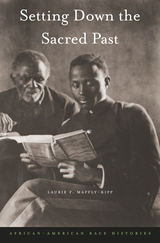
As early as the 1780s, African Americans told stories that enabled them to survive and even thrive in the midst of unspeakable assault. Tracing previously unexplored narratives from the late eighteenth century to the 1920s, Laurie Maffly-Kipp brings to light an extraordinary trove of sweeping race histories that African Americans wove together out of racial and religious concerns.
Asserting a role in God's plan, black Protestants sought to root their people in both sacred and secular time. A remarkable array of chroniclers—men and women, clergy, journalists, shoemakers, teachers, southerners and northerners—shared a belief that narrating a usable past offered hope, pride, and the promise of a better future. Combining Christian faith, American patriotism, and racial lineage to create a coherent sense of community, they linked past to present, Africa to America, and the Bible to classical literature. From collected shards of memory and emerging intellectual tools, African Americans fashioned stories that helped to restore meaning and purpose to their lives in the face of relentless oppression.
In a pioneering work of research and discovery, Maffly-Kipp shows how blacks overcame the accusation that they had no history worth remembering. African American communal histories imagined a rich collective past in order to establish the claim to a rightful and respected place in the American present. Through the transformative power of storytelling, these men and women led their people—and indeed, all Americans—into a more profound understanding of their interconnectedness and their prospects for a common future.
READERS
Browse our collection.
PUBLISHERS
See BiblioVault's publisher services.
STUDENT SERVICES
Files for college accessibility offices.
UChicago Accessibility Resources
home | accessibility | search | about | contact us
BiblioVault ® 2001 - 2024
The University of Chicago Press









